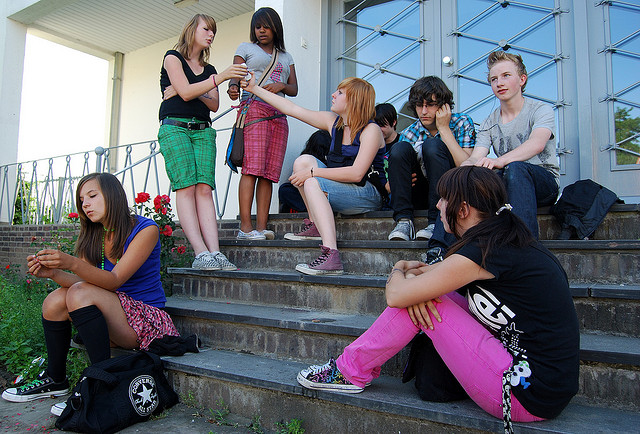New Paper Says Sexual and Reproductive Health of “Very Young Adolescents” Is Crucial
Careful, science. We wouldn't want to empower anyone too much.

A new study available online ahead of publication in the peer-reviewed journal of Global Public Health says that it’s vital for sexual health services to begin focusing on adolescents between the ages of 10-14.
According to research performed by the Georgetown University’s Institute for Reproductive Health, the long-term value of educating youth in the 10-14 age range about reproduction, sex and gender often goes unrecognized, leaving young adolescents across the globe vulnerable.
Senior author on the paper Rebecka Lundgren, MPH, explains the value of targeting this often-overlooked demographic:
Ten is not too young to help girls and boys understand their bodies and the changes that are occurring. Ten is not too young to begin to move them from ignorance to knowledge […] We need to reach 10 to 14 year olds, often through their parents or schools, to teach them about their bodies and support development of a healthy body image and a strong sense of self worth. We also need to hear their voices — the voices of the under-heard and underserved. Ten is not too young.
The paper warns that since sexual health centers and programs are largely unavailable for very young adolescents in lower and middle-income countries, 10-14-year-olds often rely on the (sometimes dangerously) misinformed advice of their peers. Lundgren advises that young straight cis girls aren’t the only adolescents that would benefit from increased support:
We need to expand that focus to include boys, laying a foundation for both girls and boys to learn and communicate with peers, parents, teachers and health providers as they develop positive self images and healthy practices in order to move this age group from vulnerability to empowerment.
To hear insight into the struggles faced by children on the cusp of adulthood across the globe, you can read testimonials in the study. Adolescence can be full of so much unnecessary private shame that I think it’s easy to forget its struggles are also global, and judging from the youth represented in the study, 10-14-year-olds everywhere could do with more support.
(via Eureka Alert, image via Mahdi Abdulrazak on Flickr)
Are you following The Mary Sue on Twitter, Facebook, Tumblr, Instagram, & Google +?
Have a tip we should know? tips@themarysue.com